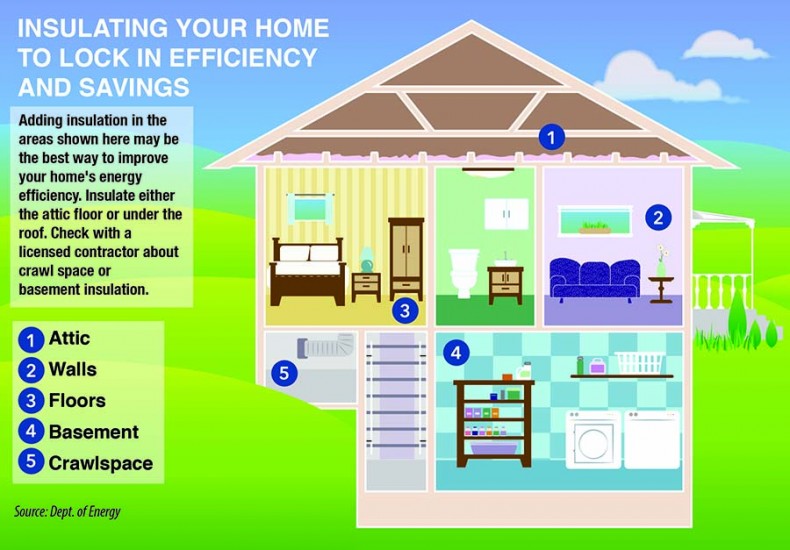Do you need more insulation?
Shielding your home with insulation can noticeably reduce your energy costs
By Anne PrinceAccording to the Department of Energy, you can reduce your heating and cooling needs up to 30 percent by properly insulating and weatherizing your home.
If your home is more than 20 years old and was not specifically constructed for energy efficiency, additional insulation can likely reduce your energy bills and increase your comfort level. Even adding insulation to a newer home can pay for itself within a few years.
The actual savings for each home depends upon several factors — the current level of insulation, your climate, your heating/cooling system’s efficiency and your utility rates.
Where to start
Check with your electric cooperative to see if it conducts a home energy efficiency audit that covers insulation or for more information about audits in your area.
You’ll need to determine how much insulation you already have and where it’s located. For those with the DIY spirit, you can conduct an insulation audit yourself. Look for:
- Where your home is, isn’t, and/or should be insulated
- The type of insulation in your home
- The insulation’s R-value and thickness or depth (inches)
Attics are chronically under-insulated. Whether you live in a cool or warm climate, attic insulation is essential to help keep warm air inside in the winter and prevent hot attic air from heating your living spaces in the summer. If you have R-19 or less insulation in your attic, consider bringing it up to R-38 in moderate climates and R-49 in cold climates.
Environmentally friendly options
Insulation choices include environmentally friendly options made of recycled materials, such as scrap blue jeans. It looks similar to chopped-up blue jeans and is treated for fire safety. With an insulating R-value similar to fiberglass insulation, this blue-jean insulation is a great option.
About the Author
Anne Prince writes on consumer and cooperative affairs for the National Rural Electric Cooperative Association.-
Share this story:




